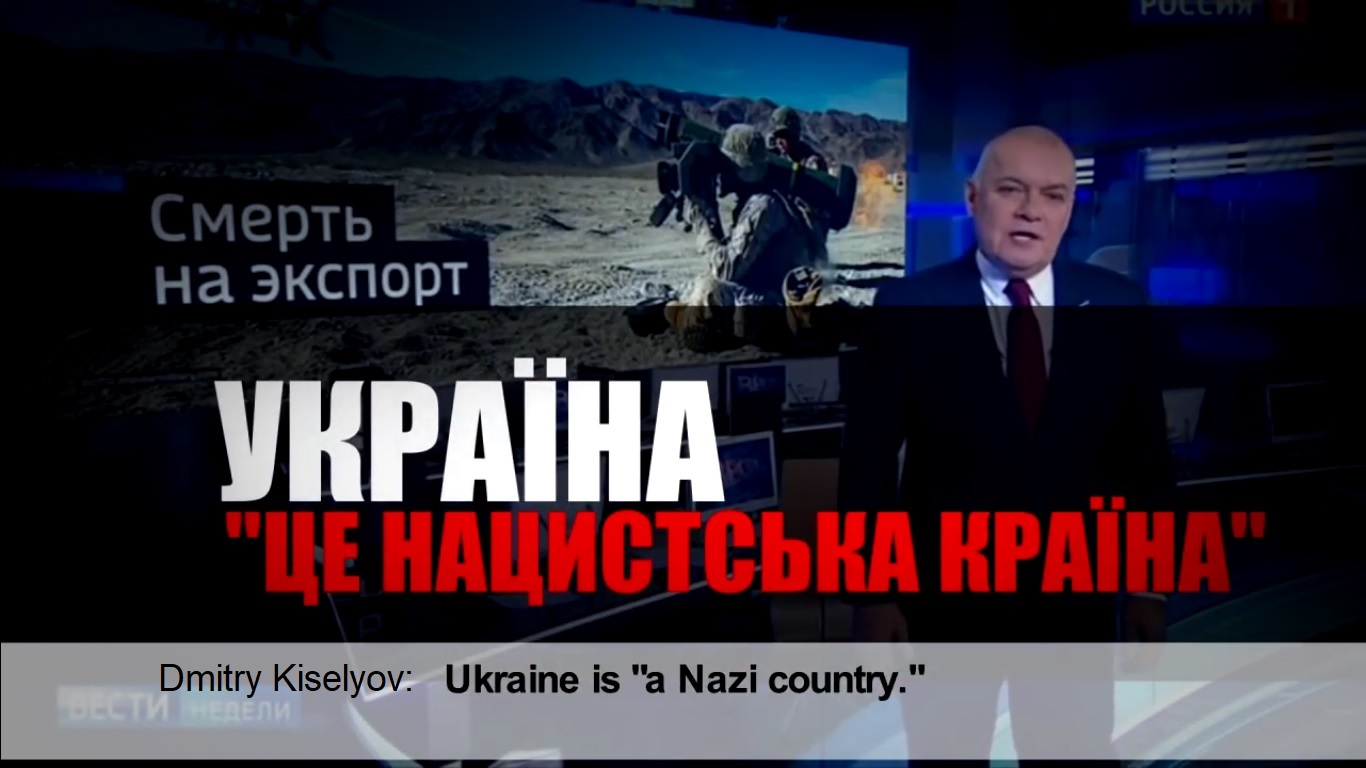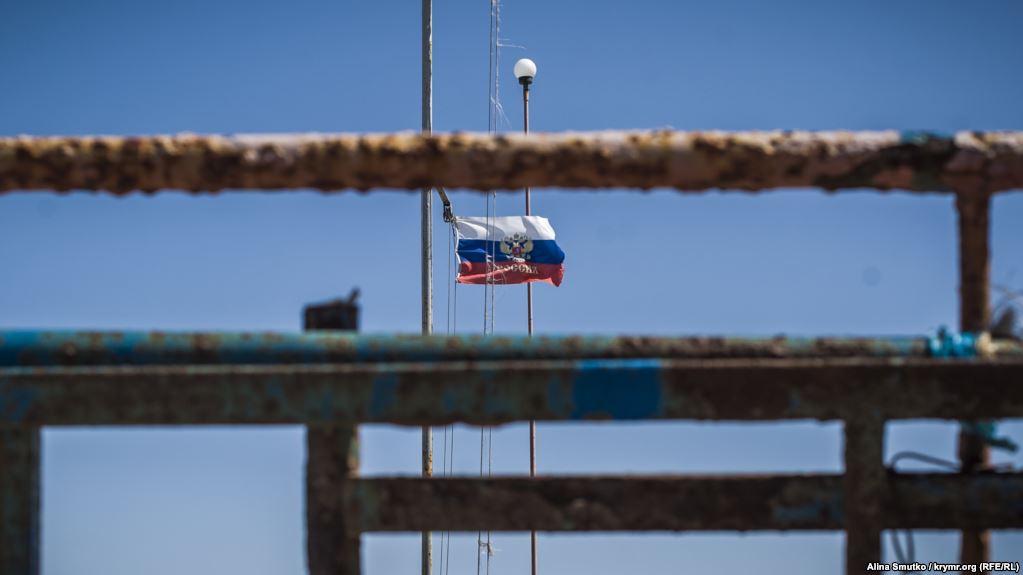This thinly veiled ode to Pan-Slavism attempts to bind the fate of Russia and Ukraine together in a struggle against malign Western forces that seek the ruin of what he purports is a single people. Unsurprisingly, the modern Russian Federation under Putin’s visionary leadership is presented as the only force in existence today with the steel and will to succeed in this existential mission.
Putin explains the deteriorating state of relations between the two countries “as a result of purposeful work of those forces [the West] that have always sought to undermine our unity.” The call for Russian and Ukrainian solidarity as the result of being “one people” and Kyiv’s subsequent need of Moscow to achieve “true Ukrainian sovereignty” should be understood for what it is: an attempt to bolster Putin’s narrative of a Ukraine besieged by Western sympathizers and foreign influencers who seek to undermine Russian security, consolidate economic control of the post-Soviet space, and eventually threaten his own hold on power.
According to Putin, Russia and Ukraine are parts of “one historical and spiritual space” that includes Belarus and has “been developing as a single economic system for decades, centuries.”
This language should be alarming as it explicitly provides the rationale for the Union State of Belarus and Russia; should a true political union between these two neighbors eventually develop, it is easy to extrapolate how Moscow and Minsk could come to exert pressure on Kyiv. President Volodymyr Zelenskyy has described this exact scenario as a serious danger for Ukraine.
The discussion of shared values, culture and historical roots should come as no surprise to observers of Russian action in Ukraine.
The article makes small conciliations to the concept of Ukraine as its own nation by granting that “centuries of fragmentation, life in different states, regional linguistic features and dialects have arisen [between Russians and Ukrainians],” but Putin consistently returns to his central thesis that differences between the two are not significant enough to warrant separate identities.
The Russian President cites the influence of Ukrainian elites and intellectuals throughout the recent centuries to artificially widen the chasm between the two peoples by constructing a false historical narrative.
He then goes on to discuss the policies of indigenization enacted by the Bolsheviks in the ’20s and ’30s in which “Ukrainization was often imposed on those who did not consider themselves Ukrainian.” According to Putin, this was to break down the mindset of Russia as a great power and eliminate the ties to the Russian imperialistic regime that elicited national pride. This would subsequently awaken the class conscience of the proletariat to their true interests (as stated by Marx, the working class had no fatherland).
None of this can be separated from Putin’s critique of liberal democracy as an obsolete ideology. He considers the latter as incompatible with the single identity of Russians, Ukrainians, and Belarusians that the Western powers (the vanguard of liberalism) have tried to “divide and conquer.”
He has consistently justified his annexation of Crimea and support for separatists under the guise of protecting the rights of a Russian-speaking minority; additionally, the focus on shared values and identity seems to be another step in bolstering his narrative of a Slavic East besieged by the imperial forces of unrestrained Liberalism. This message of values, shared identities, and geographical relevance should also seem eerily reminiscent of another school of thought prominent in Russia today: the Eurasianism of Russian geopolitical theorist Aleksandr Dugin.
Dugin blends Neobolshevik and fascist elements in his ideology of Eurasianism, envisioning the world as being divided up into civilization-based super-states that encompass multiple national identities.
It is no coincidence that both Putin’s strategy in Eastern Ukraine and the central thesis of his article closely reflect these beliefs – Dugin is considered by many to advise Putin on matters of geopolitics. Dugin has also publicly stated that Putin made a mistake in not also annexing the eastern oblasts of Ukraine, including Luhansk and Donetsk, when Moscow seized Crimea in 2014.
It should be noted that in the wake of the article’s release, Putin spokesman Dmitry Peskov has refused to answer reporters over the issue of whether the Kremlin could move to incorporate these rebel-held regions into the Russian Federation.
Ukraine’s Western partners in Europe and the United States should be paying attention to the motivations behind Putin’s long article and the beliefs that it expresses. It is a reminder that its allies in Kyiv need to stay ever-vigilant to the words coming from the Kremlin and the narrative that they are meant to support. It is also a reminder that pundits in the West should work to better understand the political and cultural history of Ukraine. This will help them to be better partners to the country as well as understand the geopolitical situation as seen from the Kremlin, both of these being necessary to anticipate future actions and proactively develop effective responses.
Read More:
- Alternative history: how Russia seeks to annex Kyivan Rus
- Vitaly Portnikov: For Putin, Ukraine does not and will never exist
- Putin better reflects underlying Russian values than does the opposition and his system will thus outlast both, Pastukhov says
- On historical unity in a prison of nations: Ukraine’s Institute of National Remembrance Head strikes back at Putin
- If anyone wrote Russian history the way Putin writes Ukraine’s, Putin would be outraged, Travin says
- Putin views Ukraine as “the anti-Russia” and the struggle against it as his mission, Shevchuk says
- Putin’s essay on Russia and Ukraine about far larger issues than that, Yavlinsky says
- Putin’s fixation on Ukraine is demagogic, delusional and dangerous
- Putin’s new article – ‘ideological justification for a future war,’ Pastukhov says
- Putin’s penchant for drawing and crossing ‘red lines’
- Putin offering Ukraine same deal Stalin offered West Germany in 1952, Piontkovsky says
- Putin believes only annexing Ukraine will allow Russia to be a superpower without harm to its ethnic Russian core, Eidman says






